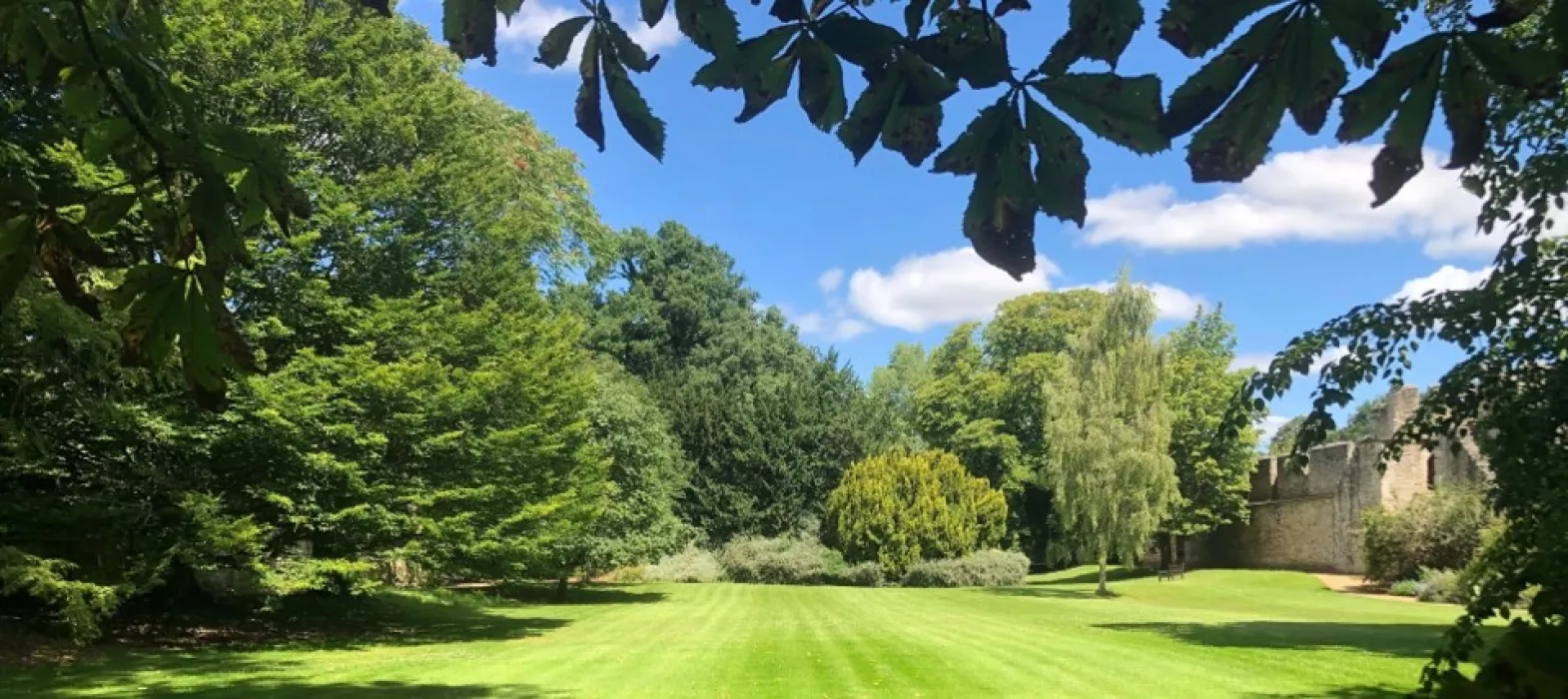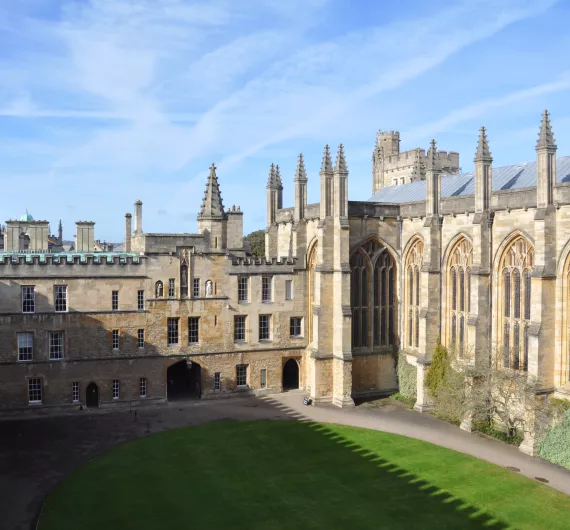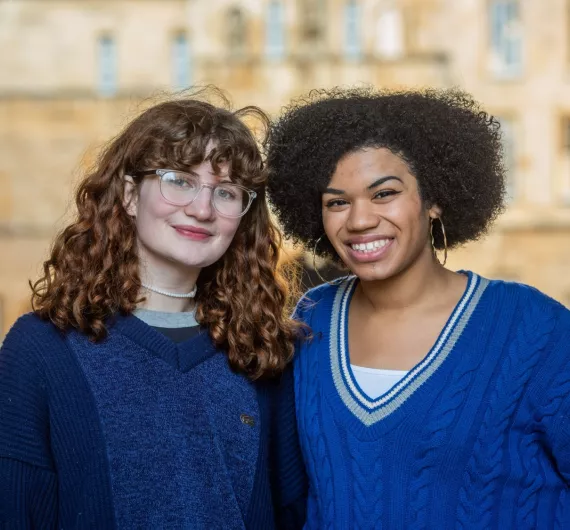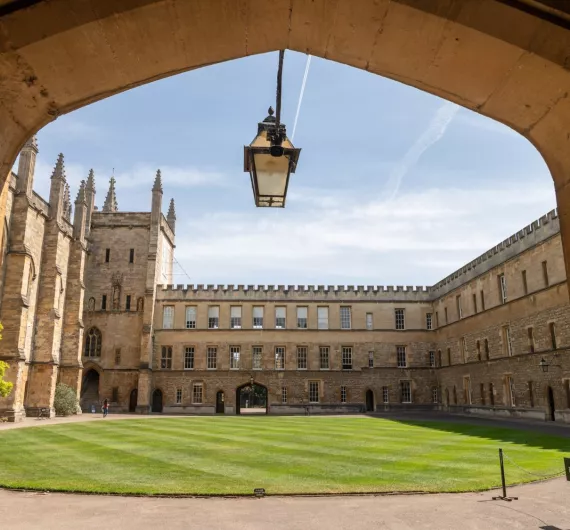Environmental Sustainability Strategy
Our strategy considers the actions our community needs to take to make New College a sustainable and environmentally conscious home both now and in the future.
Read our Environmental Sustainability Strategy.
From the New College Environmental Sustainability Strategy
Governance
New College has a sustainability team, tasked with looking after the College's strategy and ensuring that relevant activities progress as desired.
Miles Young - Warden of New College
Barbara Rossi - Sustainability Fellow, Tutor in Engineering
Barbara leads the Sustainable Metal Structures Research Group at the University of Oxford. Her research focuses on the role of key materials such as metals in structures to improve sustainability in the construction sector. She leads on the sustainability aspects of our Gradel Quadrangles construction project and has had a direct influence in reducing its embodied carbon by 55% by using less carbon-intensive materials and techniques.
Gez Wells - Home Bursar
Brian Cole - Catering Manager
Michael Collett - Clerk of Works
From the New College Environmental Sustainability Strategy
Sustainable Aims
Energy
We are striving to reduce our energy usage. We have commissioned a Decarbonisation Masterplan that will consider how we phase out our current dependency on natural gas to fuel our boilers and heat our water. We are upgrading plant equipment, installing energy-efficient lighting, making thermal improvements to our historic buildings and using smart heating controls. We only buy 100% renewable electricity through our REGO scheme.
Waste
We have contracts in place to recycle gas, plastics, paper, green waste and electrical items. Our food waste is sent to a certified waste recycling centre. We actively promote our ambition to recycle as much waste as we possibly can and we monitor our achievements. We've also banned the supply of single-use plastic bottles from our supply chain.
Biodiversity
We are blessed with wonderful grounds and we seek to maximise their biodiversity, including returning land through 'rewilding' at our sports ground to achieve net biodiversity gain.
Carbon footprint
We are reducing our carbon footprint with significant interventions, our supply chains are audited for sustainable practices and we centralise purchasing to reduce down the number of deliveries into College. We use seasonal, locally-sourced produce in our menu planning. We have also installed charging points for electric vehicles on our main sites, have a cycle to work scheme and provide interest-free loans for staff bus passes.
Environmental investments
We actively manage the Endowment Fund through Oxford University Endowment Management to be part of the solution to climate change and biodiversity loss.
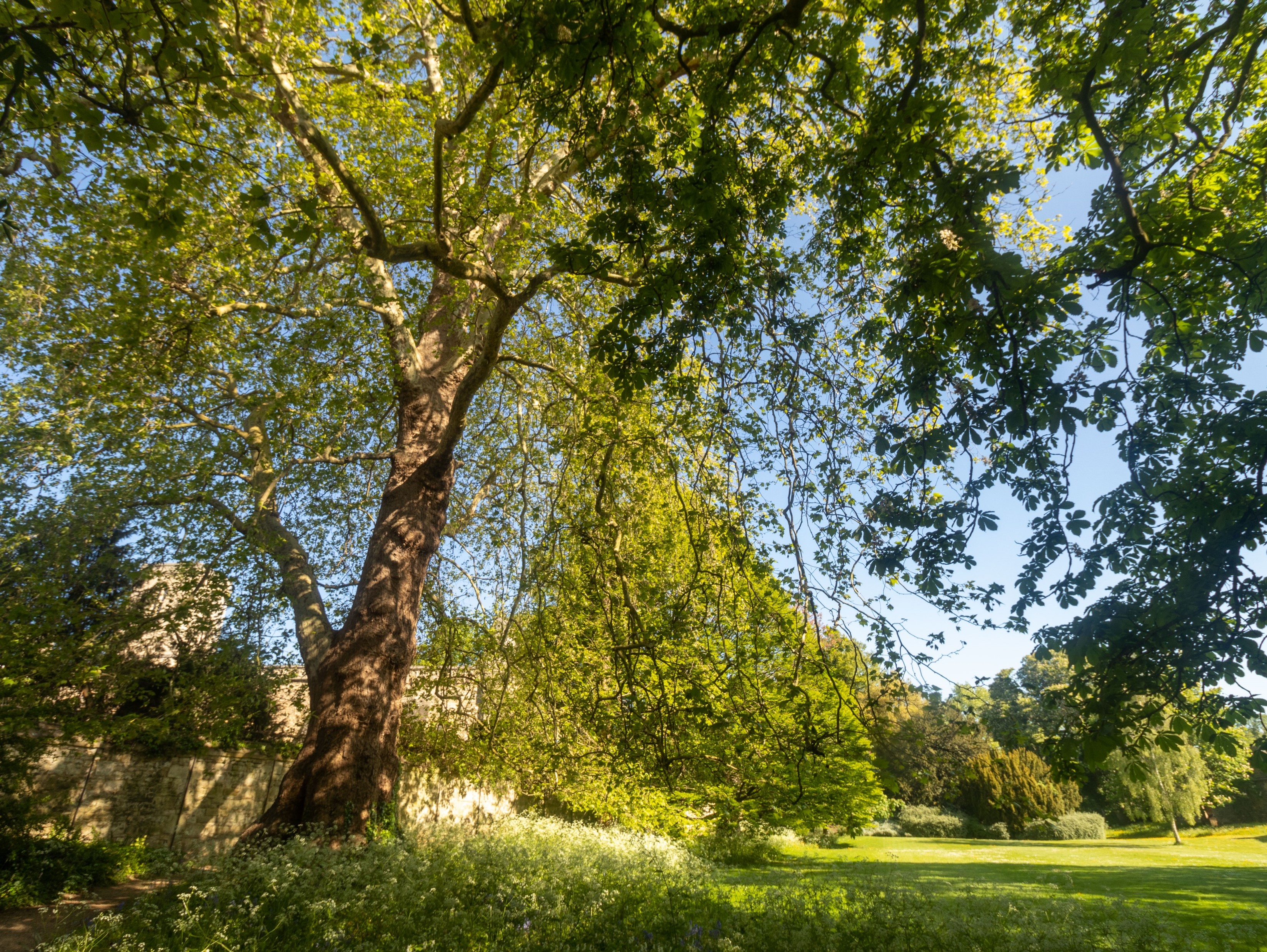
Current Activities
Biodiversity in action
In 2021, New College volunteers spent a week conducting a Biodiversity Audit of our main sites around Oxford.
The headline results were fascinating:
- Trees - 85 trees of 44 species across our main sites, storing 99 tonnes of carbon
- Insects - In the course of a few days, our audit registered 1,575 insects across our sites
- Birds - Our social scientists spotted 27 different types of birds over 3 days
- Worms - 57 worms were found, or which 65% were soil feeding
As a key part of our strategy is for all future College projects to have a positive impact upon biodiversity (be nature-positive), this assessment was essential as it provided us with our baseline.
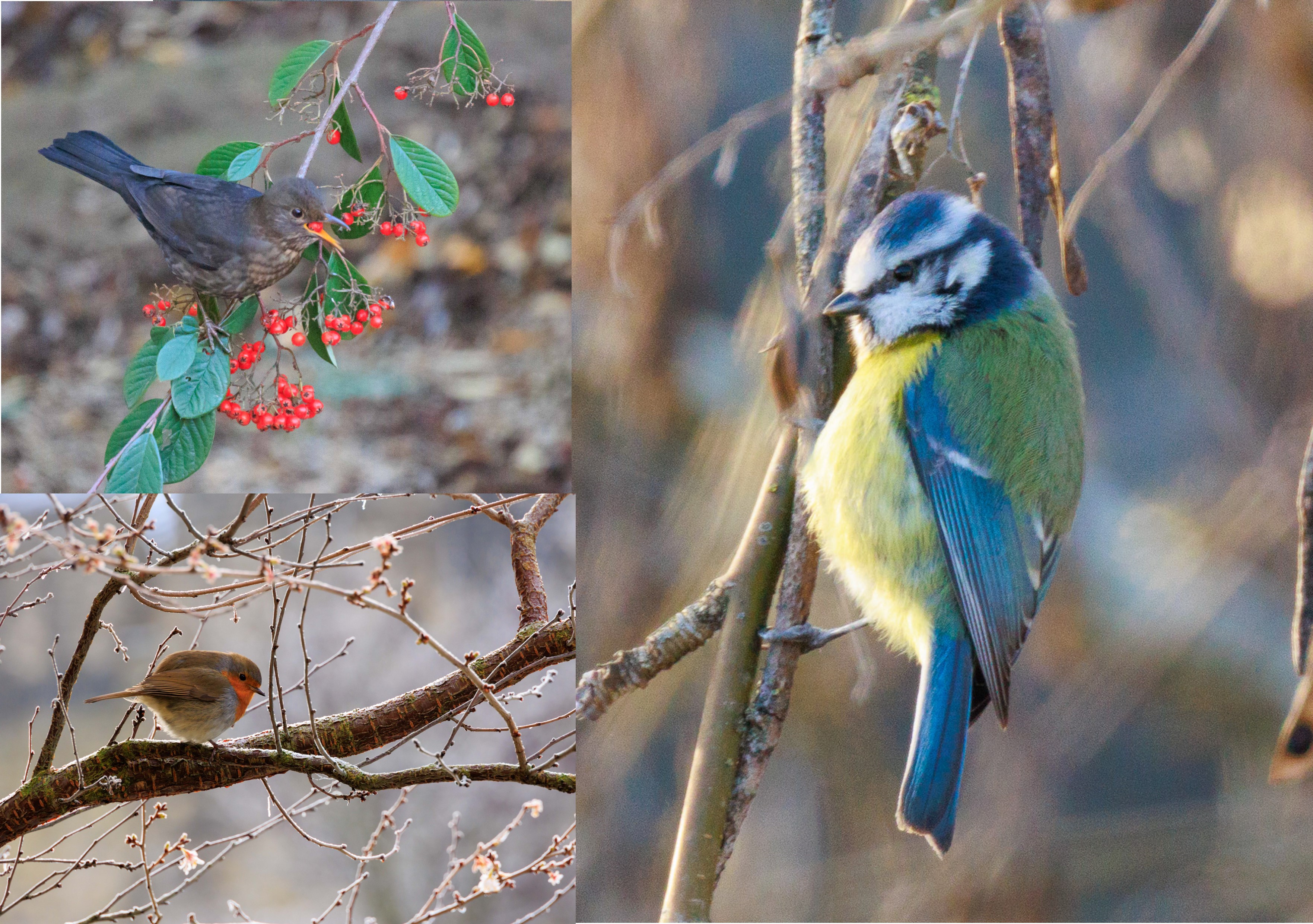
In January 2024, Alistair Brendon, the JCR Environment & Ethics Officer, along with two Biology students, completed the RSPB Big Garden Birdwatch in New College gardens and spotted the following birds:
- Feral pigeon x3
- Magpie x2
- Coal tit x1
- Great tit x2
- Robin x4
- Red kite x2
- Jackdaw x4
- Mistle thrush x1
- Crow x3
- Blue tits x4
- Wood pigeon x2
- Goldcrest x2
- Blackbird x4
- Plus, they recorded that there was an unidentified species of gull and what appeared to be a dunnock.
CO2 Data
Data to be published shortly.
Decarbonisation Masterplan
We have commissioned Skelly and Couch to conduct our Decarbonisation Masterplan that will inform how we take the significant steps to being net zero by 2035. Once finalised, the masterplan will inform our strategy, help us programme capital projects and bid for low carbon grants. The report from Skelly and Couch is due later this year (2023).
EcoSync
We have installed more than 50 intelligent thermostatic radiator valves in our Longwall accommodation range. Find out more about EcoSync TRVs.
Electric vehicle charging points
We have six electric vehicle charging points across our sites, with plans to install more in the coming years. The revenue raised from these charging points is used to fund sustainability projects in the College, such as the wilding of our sports ground.
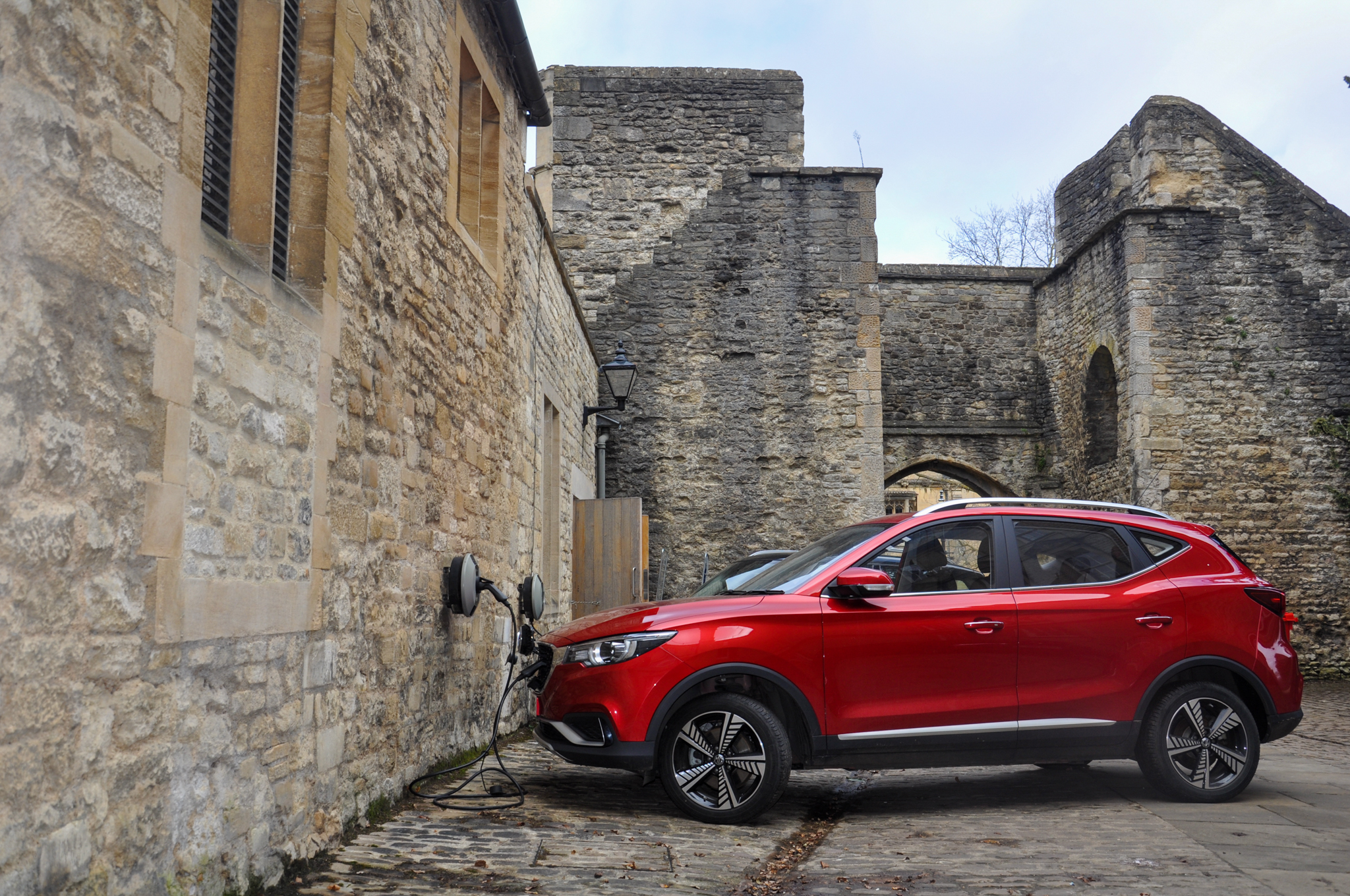
Food waste recycling
We have strategies in place to decrease food waste, such as a mandatory sign-in system for lunch. Any unavoidable food waste, we aim to recycle, and sent 5,797 kilos of food waste for recycling in the 2021-22 academic year.
Planting at Alton Barnes
Details to come shortly.
Public transport and cycling
By providing interest-free loans for bus and rail passes and having a salary sacrifice scheme for bike purchases, we are actively encouraging our staff to leave the car at home.
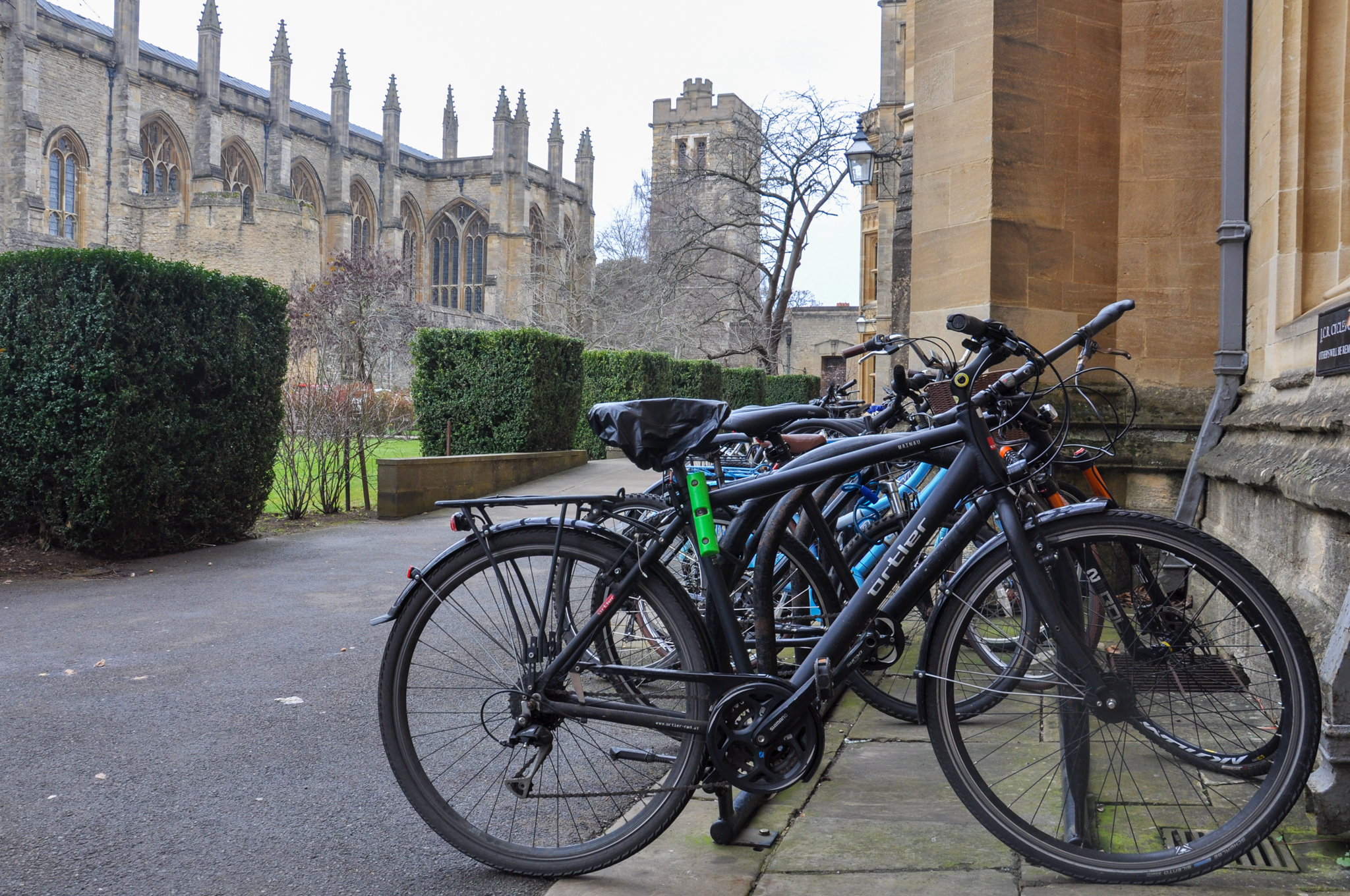
Refuse and recycling data
Data below is for October-December 2022
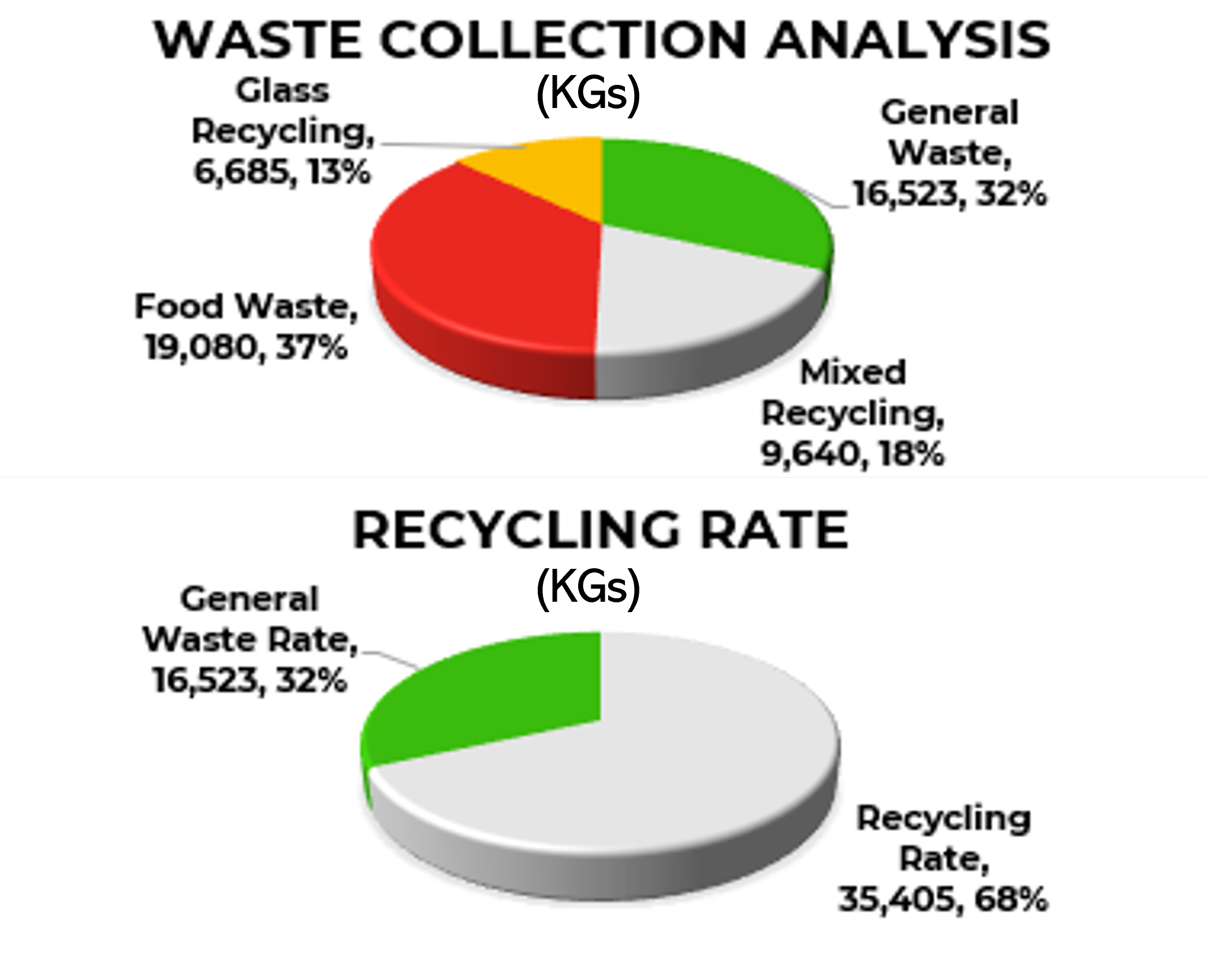
*Food waste recycling
We have strategies in place to decrease food waste, such as a mandatory sign-in system for lunch. Any unavoidable food waste, we aim to recycle.
Single-use plastics
We stopped the supply of single-use plastic water bottles in 2018. All of our conference, dining and commercial water needs are supplied by refillable glass bottles using a water filtration system.
Wilding the Sports Ground
Professorial Fellow Jeremy Thomas has put together a plan to 'wild' the boundaries of the New College Sports Ground, aiming to create strips of land containing assemblages of attractive native flower and shrub species that are suited to the terrain and aspects, and supporting a wide range of desirable insects and vertebrates.
Plans include:
- The replacement of approximately 50 hawthorn bushes in the boundary hedge with blackthorn and buckthorn, which are much more appealing to butterflies
- The planting of native plants either side of the hedge bordering the River Cherwell, including common spotted orchids, fritillaries, and nettles
- The introduction of wild flowers to the south-facing grass bank at the far end of the field
- The planting of native plants along the Linacre College wall
- The introduction of new bird and bat boxes of various designs that favour different species
*Professor Jeremy Thomas has done incredible work studying the population, community, functional and evolutionary ecology of insects, much inspired by questions arising from conservation problems. He was heavily involved in the restoration of endangered Maculinea (Large blue butterfly) species and associated communities to sites and landscapes across Europe.
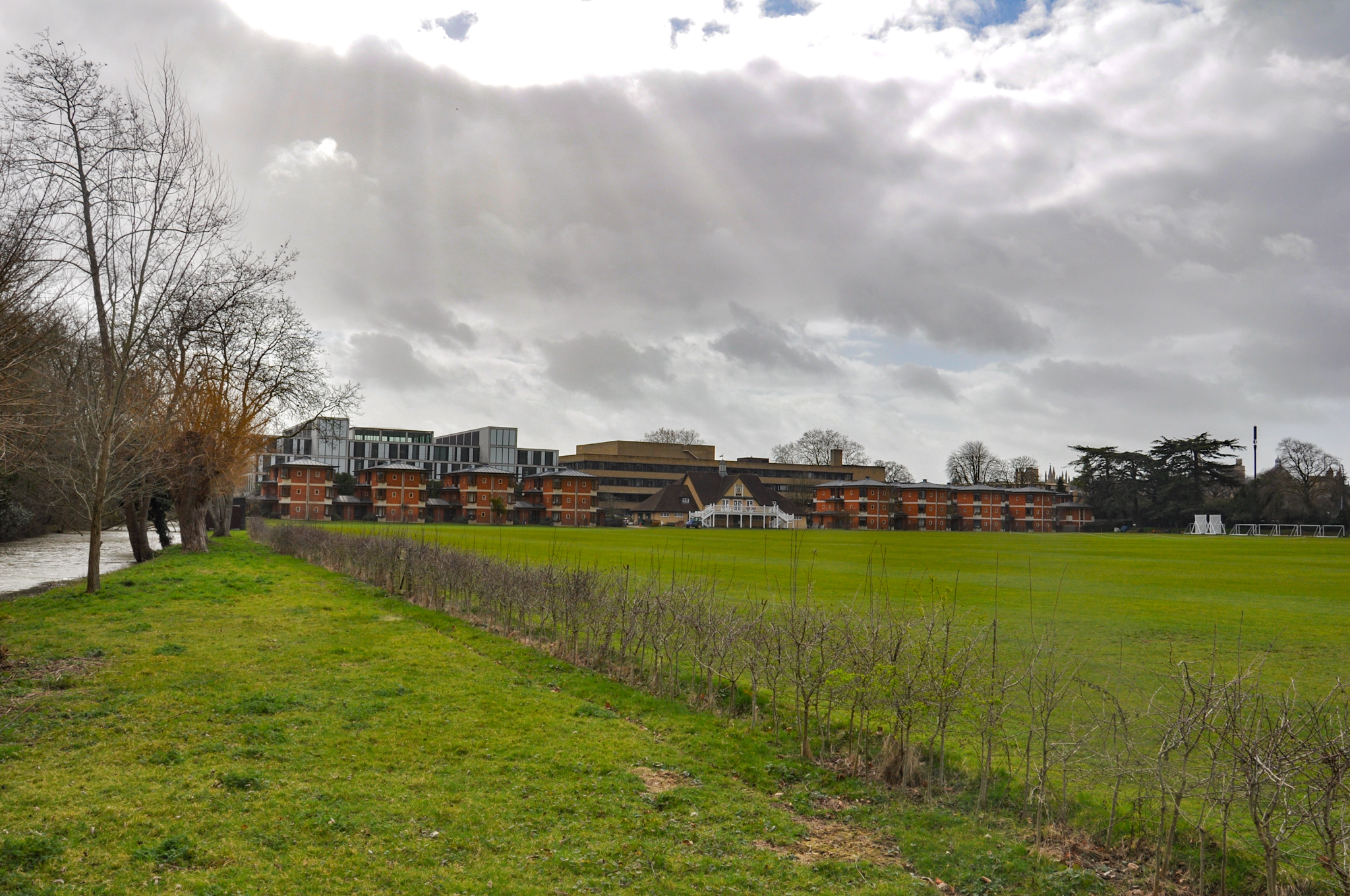
Gradel Quadrangles Project
New College has embarked on a major construction project, redeveloping its Savile Road site to create a new living and working space in a stunning architectural setting. It includes student accommodation, a multi-purpose performance venue, new office space, and new facilities for New College School.
The new Gradel Quadrangles have been designed to not only reflect the tradition of this historic architectural form, but also to reflect the contemporary ideals of New College to be open to new ideas, new colleagues, nature, and the city.
The project is due to be completed in September 2023.
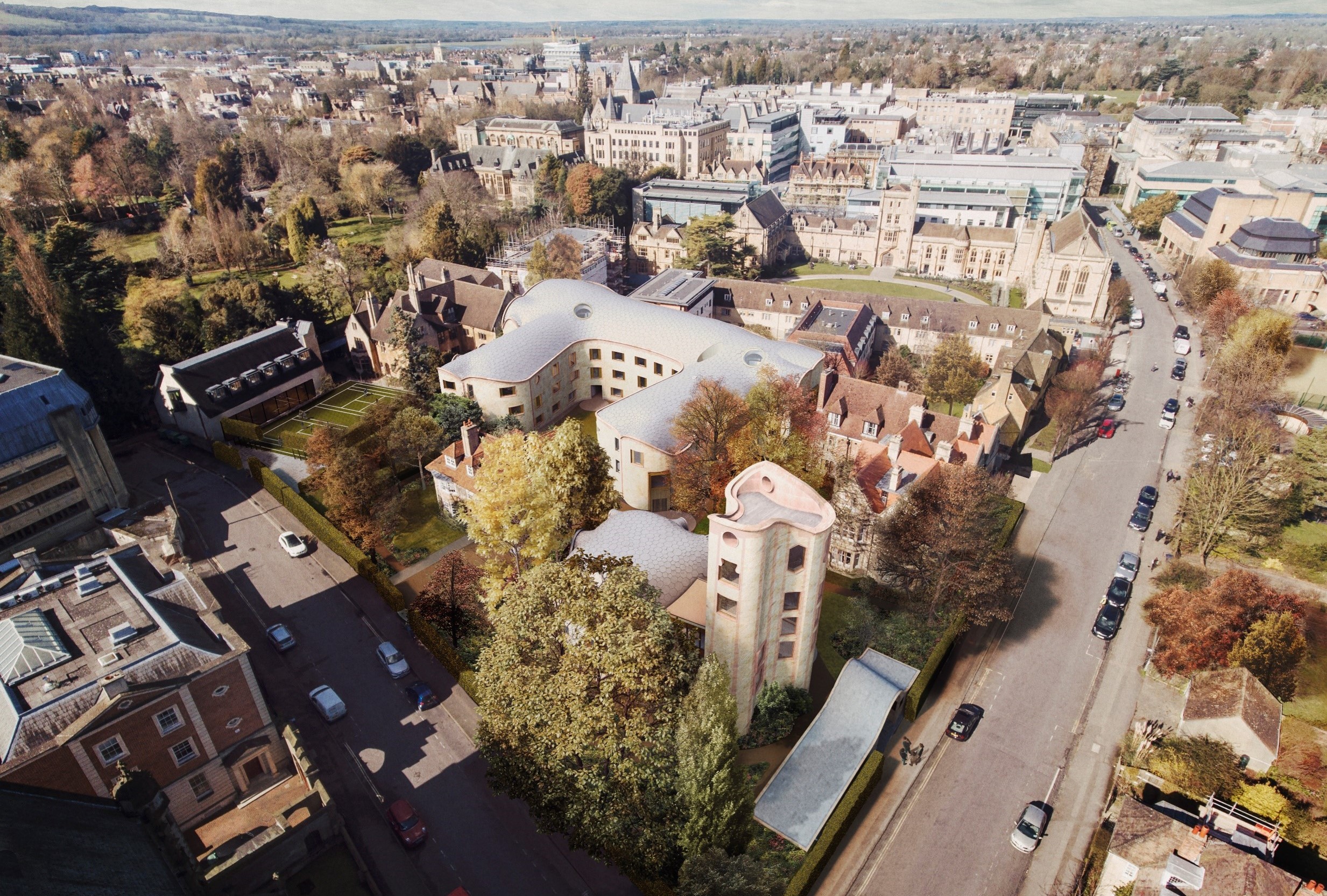
The challenges associated with climate change demand that new buildings are constructed with target levels of carbon reduction and energy usage never before achieved. With this in mind, the Gradel Quad project team implemented numerous measures to integrate sustainability throughout the construction process, and has considered a wide range of factors for both the construction and the operational stages.
These measures resulted in carbon savings of more than 775t of CO2,equivalent (embodied carbon) from the build without affecting the energy efficiency of the finished structure:
- By being selective about types of cement for piling and sub-structures, they cut out 433t of carbon from the load carrying structure of the building.
- By moving to a timber-and-aluminium roof rather than using sprayed-concrete, they saved more than 202.6t of CO2,equivalent.
- The use of Lincolnshire quarried stone for cladding shaved off almost another 97t.
- Sustainable staff transport and renewable electricity were other measures incorporated throughout the build, reducing the emissions by about 42.5t.
Such has been the success of these carbon reduction measures that the project has been awarded the status of Institution of Civil Engineers Carbon Champion.
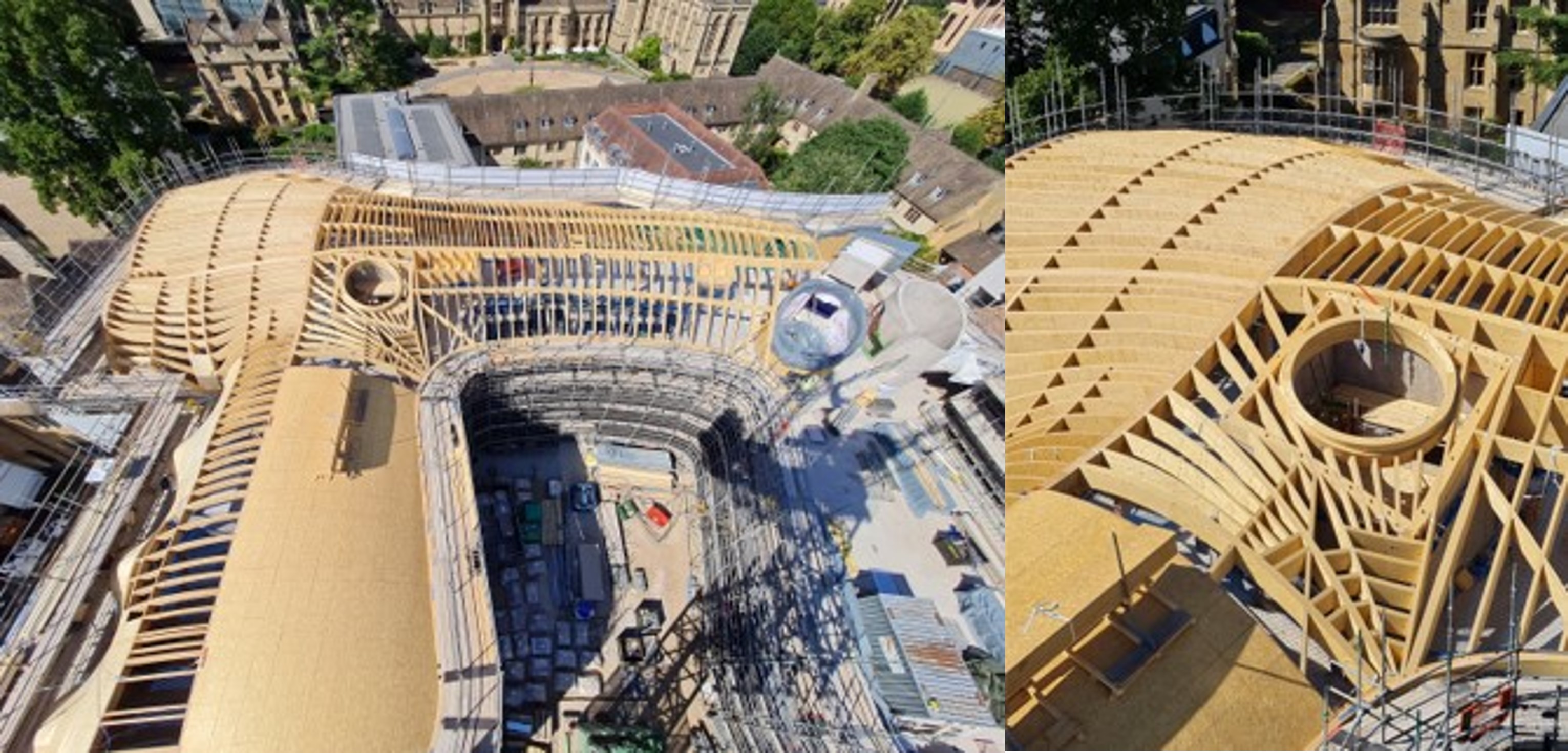
Discover more about New College

